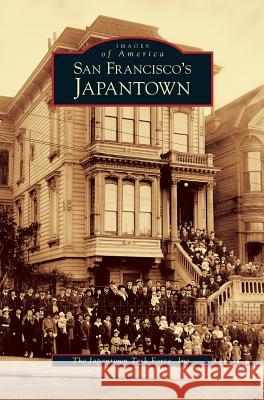San Francisco's Japantown » książka
San Francisco's Japantown
ISBN-13: 9781531616717 / Angielski / Twarda / 2005 / 130 str.
Many people driving by elegant Japantown appreciate the graceful architecture of the pagodas and fountains but do not know much about the Japanese community that has long been a vibrant part of San Francisco. Japantown--one
of only three left in this country--began as Nihonjinmachi, or "Japanese People's Town," after the first Japanese arrived here in 1869. As their numbers increased, institutions arose to serve them, including churches, schools, and various civic and social organizations. The
population drifted through various parts of the city and finally settled in the Western Addition after the 1906 earthquake.
Many people driving by elegant Japantown appreciate the graceful architecture of the pagodas and fountains but do not know much about the Japanese community that has long been a vibrant part of San Francisco. Japantown--one
of only three left in this country--began as Nihonjinmachi, or "Japanese Peoples Town," after the first Japanese arrived here in 1869. As their numbers increased, institutions arose to serve them, including churches, schools, and various civic and social organizations. The
population drifted through various parts of the city and finally settled in the Western Addition after the 1906 earthquake.











